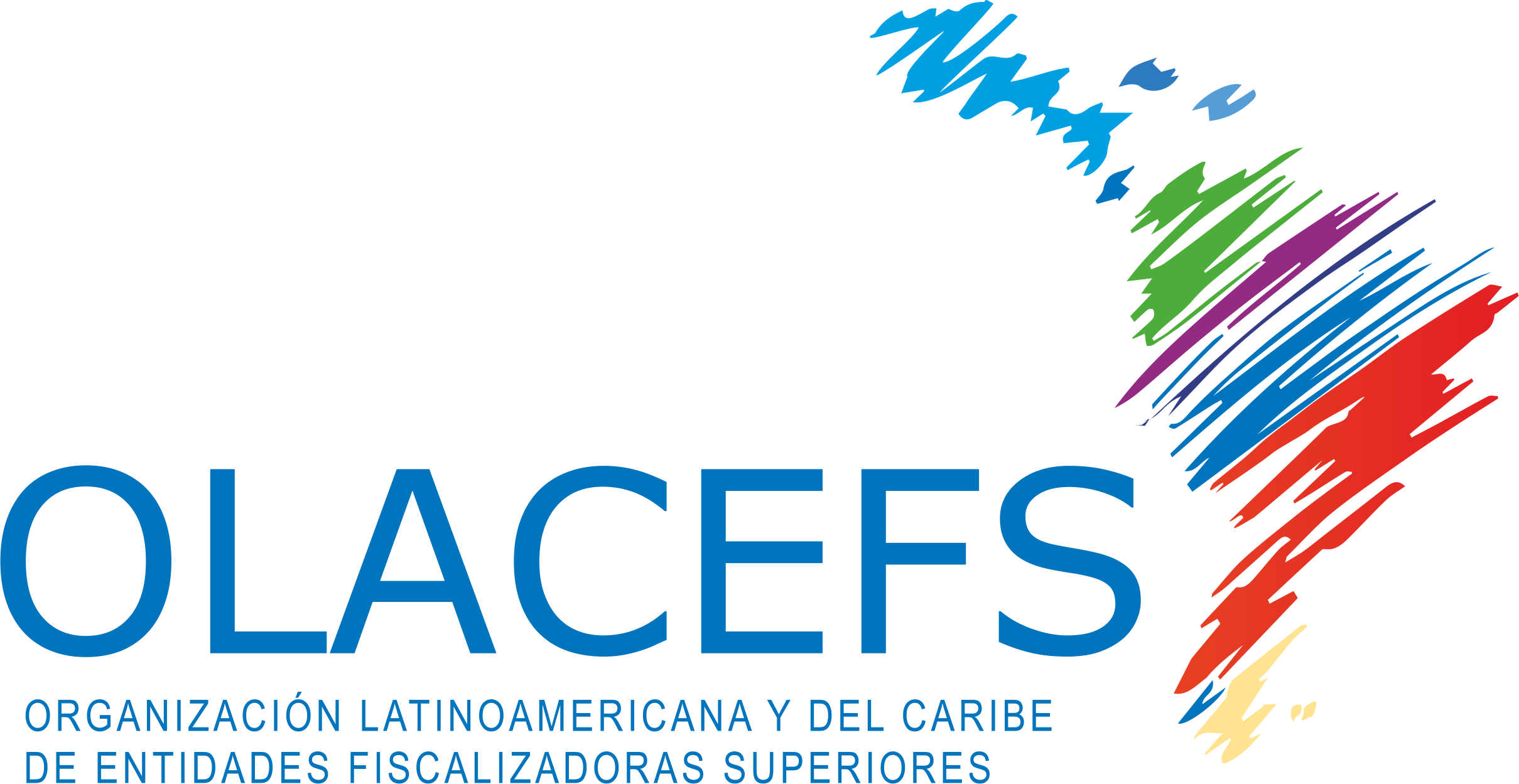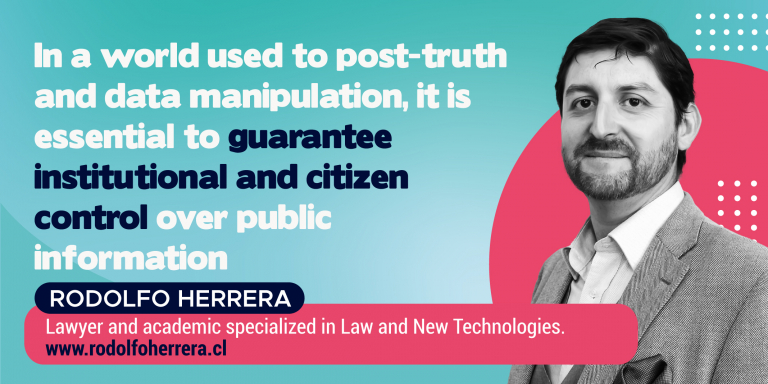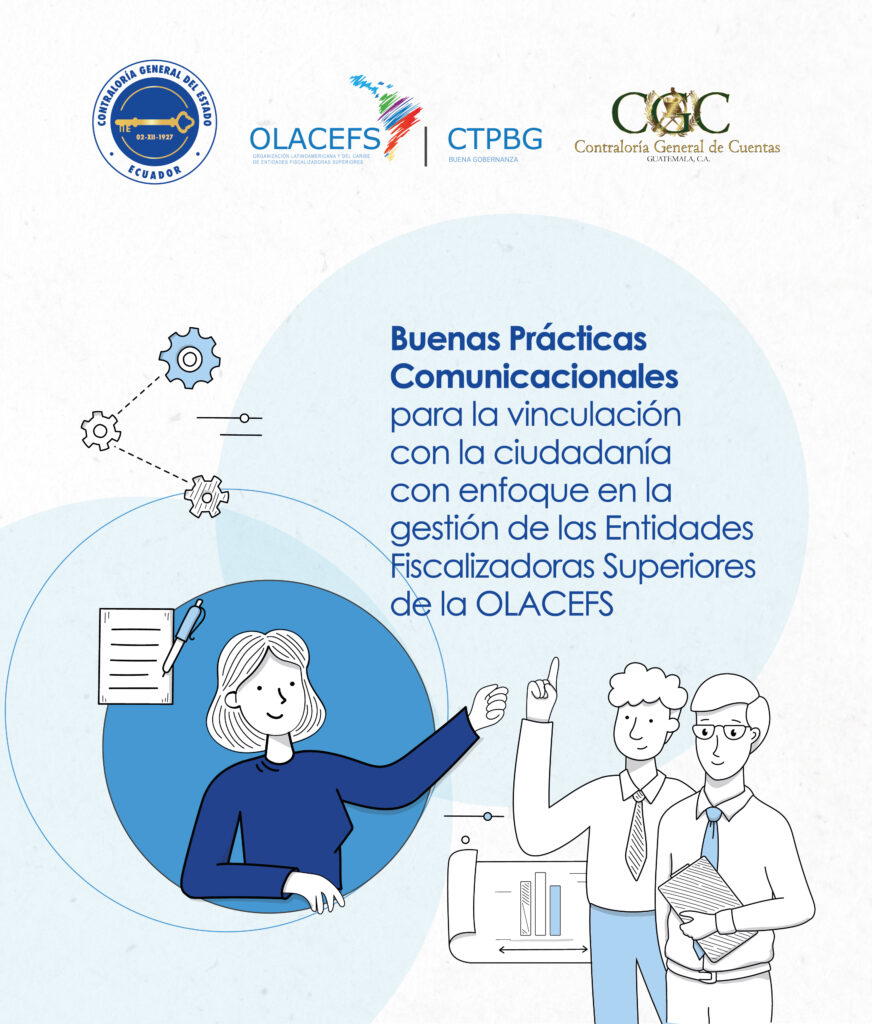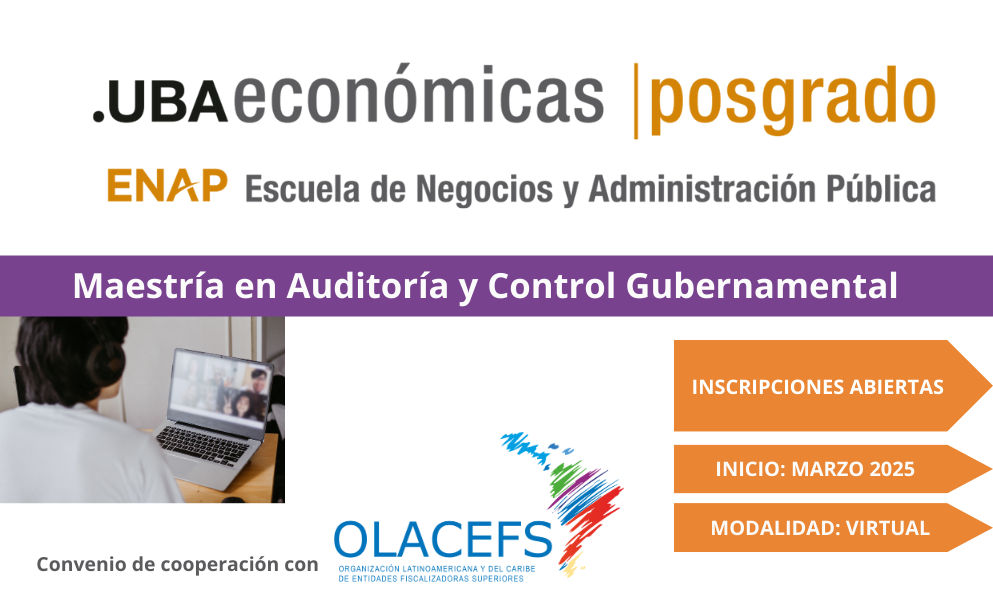Rodolfo Herrera Bravo
Lawyer and academic specialized in Law and New Technologies
www.rodolfoherrera.cl
It came suddenly and violently. Nobody was prepared and IT showed our fragility and our masks. We still have not overcome it and we do not know its consequences, both individually and collectively.
When the world defeats the Covid-19 pandemic we will have to continue our lives, perhaps missing more than one loved one. We are likely to suffer from anguish, depression, and anxiety due to stress, grief, economic recessions, unemployment, insolvency and, of course, general precariousness.
However, there are also lessons that crises leave us, which, if used intelligently, can be a catalyst to advance in aspects that have remained neglected or that have not been given relevance. In particular, we refer to the real digital transformation of the State and, consequently, to the role of the control of government decisions on the matter. Therefore, below are 5 points that could be reviewed.
1. Flexible and secure digital public procedures.
This is one of the lessons that Chile was able to foresee for many years and it was not done well. Legally, we have recognized the value of digital actions since 2002; the State has technology, it has been concerned with extending connectivity throughout the country and the different governments to date have carried out several initiatives to automate procedures. However, many of these actions have been half-hearted, maintaining stages of presence or linked to requirements that are not obtained online. In fact, most public services still do not interoperate correctly or only implement isolated and specific projects.
It has also been unfortunate to see how some people, especially those who lack more resources and immigrants and who need more attention from the State, have had to go en masse to notaries and public offices, putting their health at risk to carry out procedures before public bodies that could have been fully implemented online for years already.
Nor have there been effective public policies to massify digital identity, as has been demonstrated with the problems of the Unique Key in pandemic times. Likewise, a model of advanced electronic signatures continues to take root, making it difficult to enter other types of electronic signatures that are more secure, accessible and intuitive for citizens, such as biometrics, for example, or with more levels of authentication.
This explains why, when we had to face social isolation so abruptly, it was necessary to devise solutions to make requirements more flexible, sign documents remotely and simplify procedures remotely.
However, while it is sensible to admit this flexibility in times of pandemic, due to fortuitous events or the force majeure that it entails, it is an exceptional situation that, if not properly justified, presents the risk of ensuring continuity at the cost of legality, as a general rule.
Therefore, a scenario appears in which the control must be rigorous to distinguish the exceptionality of the crisis and not confuse it with the negligence or ineffectiveness that some digitalization projects have had.
2. Guarantee a fundamental right of access to quality digital networks.
Linked to the above, the State cannot transform itself digitally if it does not guarantee access to the entire population, especially those who today do not have the appropriate means. Otherwise, the social gap will maintain discrimination in the use of technology.
For years, work has been done on network connectivity and coverage. Now it is necessary to delve deeper into two more aspects: On the one hand, in the construction of quality content, regarding public utility, teaching, information, culture and entertainment, instead of what today is received by open television signal, motivated by the mediocrity of the rating. Here, control has another great challenge in dealing with the political use that governments in turn could make in facing this content construction.
And, on the other hand, everyone must have a recognized right of free access to such content, with a guaranteed minimum quality, either from private personal devices or through resources provided by the State for the population that lacks them. Precisely, the new social pact that we hope will be built in the next few years in Chile must include a fundamental right of access to digital networks for each person, putting the State as a guarantor.
3. Intensive use of teleworking in the State.
These days telecommuting has been a true privilege of the few of us who have been able to keep ourselves safe, working from home without fear of being fired or exposing the health of our families. Of course, not everyone has been able to perform correctly when the conditions in which they do so do not allow space and time to be separated for work, family and rest. However, it has passed the litmus test in many types of employment, validating itself as a legitimate, efficient and beneficial option, not only for times of crisis.
Telework has to be promoted in public organizations, for all activities and functions that can reconcile the fulfillment of objectives with this modality, although guaranteeing the attention of those procedures that still maintain presence. Therefore, the control must devise audit modalities that are compatible with this new reality so as not to become a brake or an excuse for the authorities not to massify it.
Of course, it is necessary to teach public officials to telework, because it demands an order and discipline different from the face-to-face routine. In addition, it needs the provision of private spaces or public telecentres to do so, where personal roles and scenarios are not mixed with those of the workplace.
4. Control over the transparency of official information.
In a world that is getting accustomed to post-truth and data manipulation, either by the media or by the authorities themselves, it is essential to guarantee institutional and citizen control of official information transmitted during times of crisis such as the one that we are living in. For example, there are countries that have not been clear and transparent with the community. Official figures are provided that cannot be validated by independent and specialized organizations, and decisions with a direct impact on health issues have been made without consulting doctors.
Given the risk to the population that this style of governing implies, the new social pact that is built when real normality arrives should increase control over the authorities, demanding greater transparency in cases of crisis. For example, an autonomous audit body could immediately intervene in the government working groups, as an observer, serving as a brake against possible manipulation of figures and being the guarantor of the deliberative participation of the representatives of specialized civil society. It would be a way to legitimize decisions in the face of crises as serious as a pandemic and to listen to social demand.
5. Privacy by design in applications that collect personal data.
Finally, another lesson that the pandemic leaves us, regarding the Coronapp mobile application, refers to the collection of personal data, especially if they are sensitive, as in the case of those referring to diseases. Obviously there are extraordinary circumstances in which the public interest in having health data is paramount, for example, to contain a disease as contagious as Covid-19, through traceability. In this case, the data are essential to analyze the phenomenon, plan the actions to be followed and evaluate the results.
However, the pretext of extraordinary circumstances is not enough for the State or the private sector to collect personal data without offering minimum guarantees of transparency about the correct use that they will give to the information. In this sense, I sincerely hope that, at the end of the pandemic, the development of applications for the collection and processing of personal data where privacy is guaranteed by design is normal, that is, configured by default, for example, through anonymization or pseudonymization of data.
In fact, in the case of developments carried out by the State, I consider that privacy by design and by default is even part of the principle of legality that legitimizes this action. Therefore, another issue arises here that demands an independent and specialized public control in the protection of personal data.
In short, the most effective motivator to position digital transformation as a priority issue in the State has been the health crisis. However, it should be seen not only as an exceptional response in times of contingency, but also as a general rule to be consolidated as soon as we overcome the pandemic. At that time, the public control bodies will need to intervene in different, more complex, politically uncomfortable scenarios, but where they are essential guarantors for the effectiveness of public policies and respect for the dignity and rights of all people, by the authorities on duty.
About the author
Rodolfo Herrera Bravo is a lawyer and academic specialized in Law and New Technologies at various universities in Chile. He holds a Master’s Degree in Computer Law from Universidad Complutense de Madrid and a Master’s Degree in Constitutional Law from Universidad Católica de Chile (in the degree process).
Currently, he is a founding partner at the law firm Rodolfo Herrera y Asociados Ltda. and is a lawyer in charge of Transparency, Lobbying and Data Protection at the Directorate of Public Procurement and Contracting of Chile (ChileCompras).
Previously, he was Ministerial Coordinator of Transparency at the Ministry of Education, Legal Manager at Pallavicini Consultores, Managing Partner at Pallavicini Capacitación, worked at the Legal Division of the Office of the Comptroller General of the Republic and was a Scholar at the Data Protection Agency of Madrid.
His achievements include his role as Counselor of the Chilean Institute of Law and Technologies, as a founding partner of the Chilean Law and Informatics Association, he was President of the Association of Lawyers of the Office of the Comptroller General, he was Director of the Contemporary Public Law Review and Director of the Ad Libitum Law Review.





